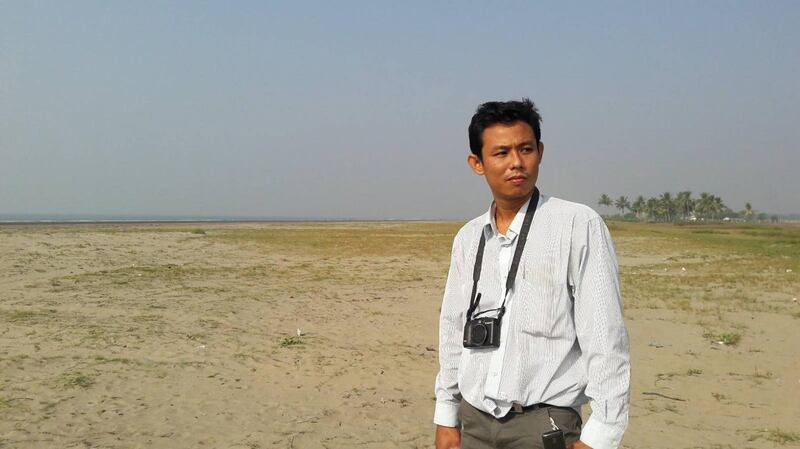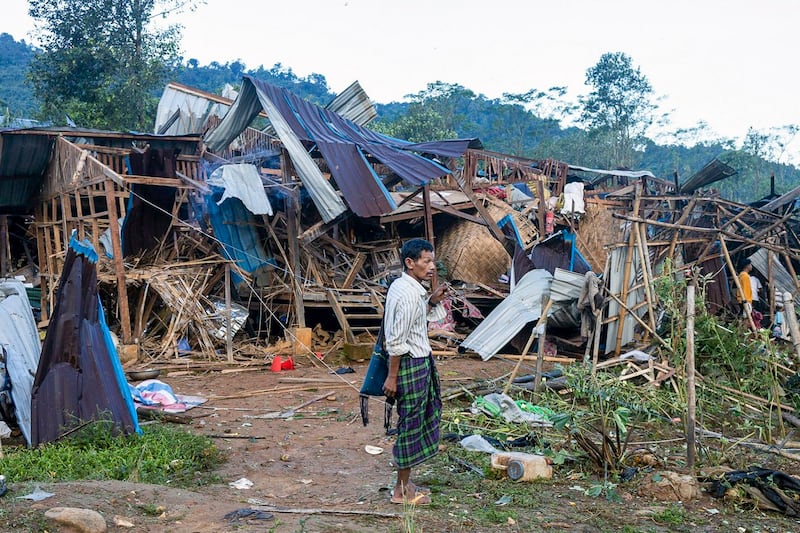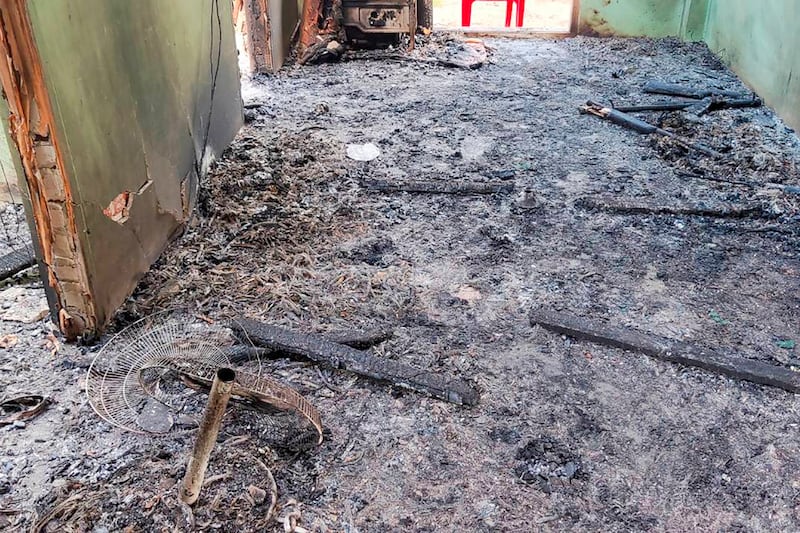Having illegally seized power and overthrown a democratically elected government, Myanmar’s military was never expected to hold itself up to the rule of law.
But given their losses since a trio of rebel armies launched Operation 1027 nearly a year ago, the military has acted with an even greater degree of desperate and callous criminality.
The U.N. The High Commissioner for Human Rights released a new report that recorded a 50% increase in civilian deaths from April 2023 to June 2024, year on year.
In addition to the more than 2414 civilians killed, the report detailed the deaths of 1,326 people, including 88 children and 125 women who died in military custody since the February 2021 coup.

The report documented executions, egregious sexual violence, and routine torture. Those who survived government custody described harrowing conditions in prisons and military detention facilities.
Now there are leaked reports on pro-regime Telegram channels that the military government is preparing to execute five anti-regime activists as early as next week.
That would follow the shocking executions of four, including Kyaw Min Yu (Ko Jimmy) and Phyo Zeya Thaw, in July 2022.
There are at least 112 people who have been put on death row since the coup. And the regime wants to send a signal through the executions, both to domestic and foreign audiences, that it is still firmly in control, despite losses on the battlefield.
War crimes are the strategy
The world has become inured to the intentional bombing of civilians, the execution of POWs, and the mass arrests of citizens as a form of collective punishment. Over 27,000 people have been arrested since the coup.
Junta troops torched more than 1,050 houses in retaliatory arson attacks in Sagaing, Magway and Mandalay regions in the first half of 2024 alone.
Radio Free Asia has documented a stepped up aerial bombing campaign leading to increased civilian casualties.
This should come as no surprise. The military’s counterinsurgency doctrine, known as the “Four Cuts” – stopping food, funds, information and recruitment to insurgents – is predicated on the intentional targeting of civilians as a deterrent for lending support to anti-regime forces.

War crimes have always been the milirary’s strategy, and troops are indoctrinated and encouraged to commit them, including rape.
The military is fighting across six distinct battle grounds, and has suffered losses in all of them. It has lost control over 60% of the towns in northern Shan state alone.
Opposition forces now control key roads and riparian ports, making the movement and resupply of troops difficult. The only way that the military can retaliate is through aerial bombardment and long-range artillery strikes.
If they can’t kill the opposition forces, they will kill the populations that support them.
Preying on their own
The military’s forces have committed such egregious human rights abuses that it’s hard to feel sorry for them. But their predatory behavior starts with plundering the income of their own troops.
Despite their paltry salaries, troops are compelled to make monthly contributions to the sprawling military-owned conglomerate Myanma Economic Holdings Ltd (MEHL). The amount differs based on rank, but all must pay.
At the end of the year, MEHL is supposed to pay troops a dividend. Yet nothing has been paid since the coup, a result of nationwide boycotts of military-produced products and services.
The military insurance plan is even more egregious.
Established in late 2012, by Min Aung Hlaing’s son, Aung Pyae Sone, by 2015 the Aung Myint Moh Insurance company had secured a monopoly on selling life insurance to the military, supplanting the state-owned Myanma Insurance. It has an unclear degree of military ownership through MEHL.
Even the lowest ranked soldiers are pressured to buy a minimum two-year policy costing some 500,000 kyats – $238 at the official, artificially low exchange rate – in addition to a monthly premium of 8,400 kyats.

Amid recent battlefield losses, including a large number of the hastily trained five classes of conscripts since, the company has had to pay out more than it’s taking in.
Its own capital reserves are thought to have flatlined in the overall poor economic climate and investment conditions.
As one can expect from Min Aung Hlaing’s rapacious clan, the insurance company is cheating. The firm has labeled many dead soldiers as “missing in action”.
In other cases, it has found loopholes in paperwork and nonpayment of monthly fees as justification for not honoring claims. The firm has pocketed the payments of the estimated 20,000 troops who have defected to the opposition.
The junta is flat out stealing from the soldiers that they conscript just to line their own pockets.
A well-armed extortion racket
The abject criminality of the military is getting worse.
Due to the military’s own economic incompetence, the economy has cratered. And with that has been a sharp decline in revenue needed to conduct the war.
The opposition National Unity Government’s digital Spring Lottery has significantly cut into government sweepstakes income. The loss of territory on the battlefield has cut off revenue streams.
Recent losses include four MOGE oil fields, coal, tin, lead and ruby mines. Intense fighting is underway in Hpakant in northern Kachin State for control of lucrative jadeite and rare earth mines.
Take a moment to read more
China’s frustration with the Myanmar junta’s incompetence is mounting
As Myanmar junta falters, rival ethnic armies jostle in Shan state
[ Caveat creditor: China offers a financial lifeline to Myanmar’s juntaOpens in new window ]

Two hydroelectric dams are now in opposition hands, while others have recently fallen into United Wa State Army control.
While the capture of towns and cities along the Chinese border has led to the shutdown of many internet scam centers and the rendition of thousands of Chinese nationals, the military regime continues to rely on transnational criminal syndicates as a source for funds.
Many have moved from Laukkaing to Yangon. Others along the Thai border remain operational and under the control of pro-regime border guards forces.
Short on funds, the military has taken to shaking down local businesses. A once functioning state revenue collection system has turned into an extortion racket.
But unlike taxes that are paid on a regular basis and have a modicum of social services provided in return, the military levies are predatory and further undermine economic growth, making capital flight a rational choice for many in Myanmar.
As the country reels from Typhoon Yagi, the junta continues to block international humanitarian aid workers, demanding that all donations go through the military itself.
Fearful that aid will go to opposition groups, the military is – once again – willing to deny vital food and medicines from reaching the most in need.
The war crimes are well documented, even if they have not moved the needle on international condemnation.
International actors, from China to India to ASEAN, still believe that military interests must be respected, and that the military deserves a seat at the table in any future government.
While the regime is preparing for elections under Chinese pressure as a political offramp, allowing the junta a future role is absolutely unacceptable.
For nearly four years, the military has systematically targeted its own population, engaged in egregious human rights abuses, impoverished its citizens, and transformed a once functioning state into a predatory and thoroughly corrupted crime syndicate.

Zachary Abuza is a professor at the National War College in Washington and an adjunct at Georgetown University. The views expressed here are his own and do not reflect the position of the U.S. Department of Defense, the National War College, Georgetown University or Radio Free Asia.
